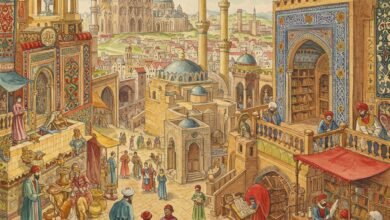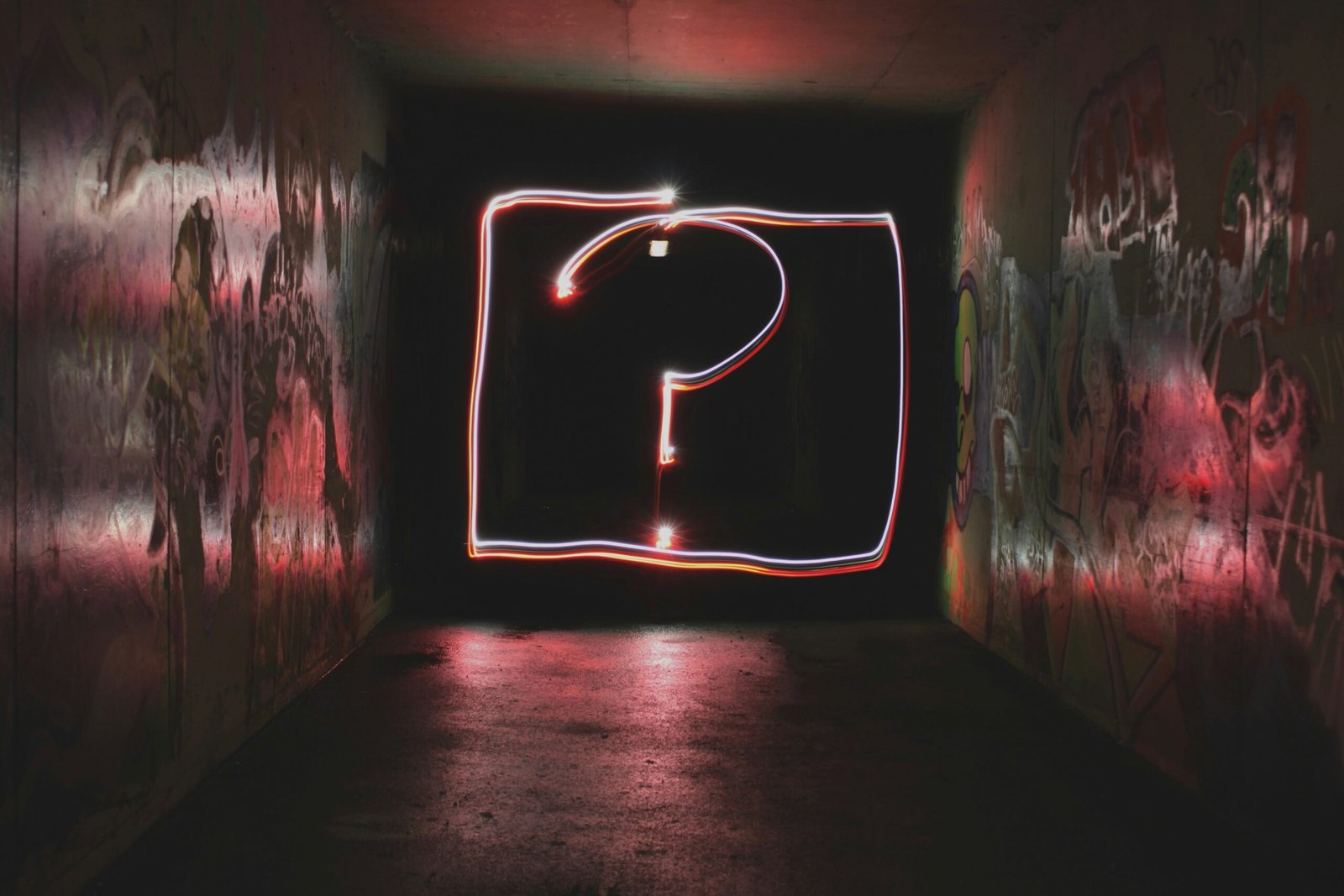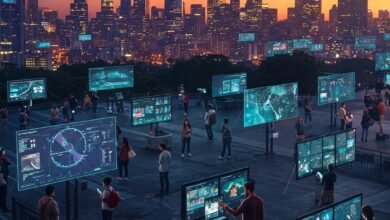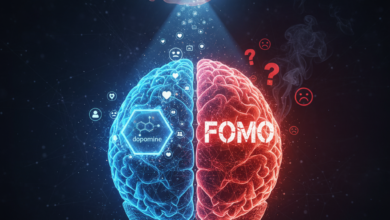The Distinct Identity of Moroccan Gen Z: A Contrast with Their Parents’ Generation
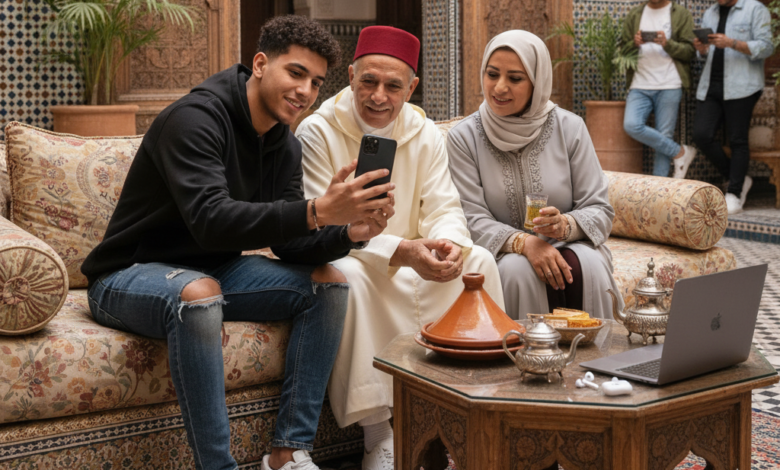
Cultural Influences and Global Connectivity
The landscape of cultural identity in Morocco has undergone significant transformation, particularly among the younger generation known as Gen Z. Unlike their parents’ generation, who primarily experienced localized cultural influences, Moroccan Gen Z has been profoundly shaped by global cultural trends. This transition can largely be attributed to the advent of the internet, which has served as a catalyst in expanding the horizons for young Moroccans.
The digital age has ushered in an era of unprecedented connectivity. Through social media platforms such as Instagram, Twitter, and TikTok, Gen Z is not only exposed to a myriad of global perspectives but is also able to engage with international trends and movements. This exposure has resulted in a unique cultural synthesis where traditional Moroccan elements intermingle with contemporary global influences. For instance, Gen Z individuals often explore global music genres, fashion trends, and even social activism, which were relatively inaccessible to their parents.
Furthermore, the rise of digital platforms facilitates real-time interaction with global issues that resonate with young Moroccans. Topics such as climate change, social justice, and gender equality are no longer just distant conversations but are increasingly relevant within the Moroccan context. This global connectivity enables Gen Z to cultivate a more cosmopolitan identity, promoting dialogue and awareness about diverse cultural narratives.
In contrast, their parents often navigated a cultural landscape that was deeply rooted in local practices and values, resulting in a collective identity that remained more insular. The generational shift in exposure to diverse cultural elements has allowed Moroccan Gen Z to articulate their identities in ways that encompass both local heritage and global relevance, leading to a richer, more interconnected sense of self.
Attitudes Towards Education and Employment
Moroccan Generation Z, characterized by its distinct outlook on education and career pathways, exhibits notable differences compared to its predecessors. Unlike their parents, who predominantly valued traditional educational trajectories leading to stable employment, Gen Z demonstrates a more flexible approach. This younger generation prioritizes skills and practical experience over formal credentials, which reflects a significant cultural shift in the labor market. As globalization continues to expand, many members of Gen Z are increasingly inclined towards alternative career paths, such as entrepreneurship and innovative sectors, positioning themselves for the dynamic demands of the future economy.
The importance of higher education is not diminished but rather redefined within this generation. While many Gen Z individuals still pursue advanced degrees, there is an increasing skepticism regarding the sole reliance on higher education as a means to secure a successful career. They recognize that many professions now require specialized skills that can be acquired through non-traditional educational channels, such as online courses, workshops, or apprenticeships. This pragmatism allows them to navigate the complexities of the modern workforce more effectively than their parents might have.
The COVID-19 pandemic has further influenced Gen Z’s employment aspirations. The economic disruptions experienced during this global crisis have led to a reassessment of job security and professional stability. Many from this generation have expressed willingness to adapt quickly, embracing remote work and digital platforms, which contrasts sharply with their parents’ reliance on conventional workplace structures. Furthermore, the pandemic has accelerated the rise of digital entrepreneurship, enticing young Moroccans to explore creative ventures and gig economy options that align with their innovative spirit.
Ultimately, the shift in attitudes towards education and employment highlights a generational divergence fueled by technological advancements and socio-economic factors. This dynamic evolution in perspective serves to enrich Morocco’s workforce with diverse talents and fresh ideas, shaping the landscape for future opportunities.
Social Issues and Activism
The emergence of Moroccan Gen Z has brought a notable shift in social awareness and activism, presenting a marked contrast to their parents’ approach to vital issues. This generation is increasingly vocal about social justice matters such as gender equality, climate change, and mental health, reflecting a more progressive mindset that aligns with global trends. Unlike the previous generation, which often adopted a more passive stance towards social issues, Moroccan Gen Z passionately advocates for change, utilizing their platforms to raise awareness and mobilize support.
One significant factor contributing to the activism of this generation is their adeptness at using social media as a tool for advocacy. Platforms like Instagram, Twitter, and TikTok have become important outlets for discussions on crucial topics, enabling young Moroccans to organize events, share information, and establish networks of support. This digital approach stands in contrast to their parents’ reliance on traditional methods of activism, which often emphasized personal connections and face-to-face interactions. Consequently, social media has not only facilitated the dissemination of information but has also empowered youth-led movements that demand attention to pressing societal issues.
Gender equality, in particular, has become a focal point for many young Moroccans. They are challenging stereotypes, advocating for women’s rights, and calling for policy changes that promote equality in various sectors. Additionally, Moroccan Gen Z has taken a strong stance on mental health, working to eradicate the stigma surrounding mental illnesses and promoting dialogue on these issues within their communities. Furthermore, climate change has emerged as an essential topic of interest, as this generation drives initiatives aimed at sustainability and environmental protection, positioning themselves as champions for a greener future.
In summary, the activism displayed by Moroccan Gen Z not only showcases their commitment to social change but also highlights a significant evolution in the dynamics of advocacy within Moroccan society. By utilizing modern tools and embracing progressive ideals, this generation is shaping a future that reflects their values and aspirations.
Technology and Lifestyle Differences
The advent of technology has significantly reshaped the lifestyle of Moroccan Gen Z in stark contrast to that of their parents’ generation. Predominantly influenced by the digital revolution, Gen Z interacts, shops, and entertains themselves in ways that their parents could not have imagined. One notable difference is the prevalence of smartphones, which have become ubiquitous among younger Moroccans. These devices serve not only as communication tools but also as gateways to social media, online shopping, and streaming services that dominate their leisure activities.
For Moroccan Gen Z, daily life revolves around being digitally connected. Social interactions often occur through social media platforms, replacing traditional face-to-face communications that characterized their parents’ formative years. This shift has cultivated a unique cultural identity that embraces global influences while remaining grounded in Moroccan traditions. The ability to access information and connect with peers across geographical boundaries has expanded Gen Z’s worldview, contrasting sharply with the localized experiences of previous generations.
Moreover, online shopping has transformed consumer habits, as young Moroccans frequently seek convenience and variety in their purchases. This stands in stark opposition to the traditional shopping experiences their parents might have enjoyed, often involving local markets and direct interactions with vendors. Digital entertainment also plays a crucial role in shaping leisure activities; streaming platforms have replaced the communal experience of watching television or going to the cinema, offering on-demand access to diverse content.
Ultimately, these technological advancements have redefined the lifestyle choices of Moroccan Gen Z, fostering a new identity that balances modernity with cultural heritage. The contrasts with their parents’ more traditional lifestyles underscore a significant generational shift in values, priorities, and daily experiences, showcasing the evolving dynamics within Moroccan society.



